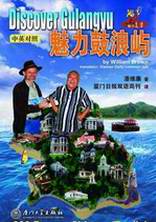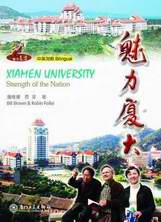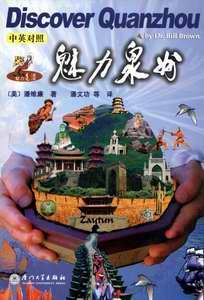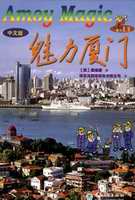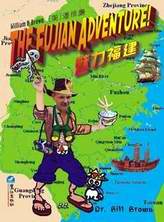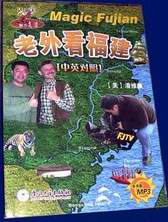![]() Click
to
Access
Click
to
Access
OUTSIDE China
![]() Click
to Access
Click
to Access
INSIDE
China ![]()
TRAVEL LINKS
![]() Xiamen
Xiamen
![]() Gulangyu
Gulangyu
![]() Jimei
Jimei
![]() Tong'an
Tong'an
![]() Jinmen
Jinmen
![]() Zhangzhou
Zhangzhou
![]() Quanzhou
Quanzhou
![]() Wuyi
Wuyi
![]() #1Fujian
Sites!
#1Fujian
Sites!
![]() Fujian
Foto Album
Fujian
Foto Album
![]() Books
on Fujian
Books
on Fujian
![]() Readers'Letters
Readers'Letters
![]() Ningde
Ningde
![]() Zhouning
Zhouning
![]() Longyan
Longyan
![]() Sanming
Sanming
![]() Putian
Putian
![]() Bridges
Bridges
![]() Travel
Info,
Travel
Info,
![]() Hakka
Roundhouses
Hakka
Roundhouses
![]() Travel
Agents
Travel
Agents
MISC. LINKS
![]() Amoy
People!
Amoy
People!
![]() Darwin
Driving
Darwin
Driving ![]()
![]() Amoy
Tigers
Amoy
Tigers
![]() Chinese
Inventions
Chinese
Inventions
![]() Tibet
in 80 Days!
Tibet
in 80 Days!
![]() Dethroned!
Dethroned!
![]()
![]() Misc.Writings
Misc.Writings
![]() Latest
News
Latest
News
![]() Lord
of Opium
Lord
of Opium
![]() Back
to Main Page
Back
to Main Page
![]() Order
Books
Order
Books![]() Xiamenguide
Forum
Xiamenguide
Forum 
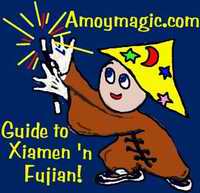
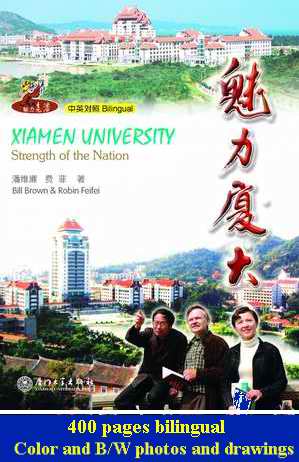 Boon-Keng,
"The Sage of Singapore"
Click for Chinese/ÖĐÎÄ
Boon-Keng,
"The Sage of Singapore"
Click for Chinese/ÖĐÎÄ
![]() Ofc.
of Int'l Exchange (ICE)Teach!
Ofc.
of Int'l Exchange (ICE)Teach! ![]() Overseas
Educ. Collegee Study!
Overseas
Educ. Collegee Study! ![]() CSP
China Studies Program
CSP
China Studies Program ![]() International
Exchanges
International
Exchanges ![]() XMU's
Many Firsts!
XMU's
Many Firsts! ![]() MBA
Center (China's 1st MBAs)
MBA
Center (China's 1st MBAs) ![]() XMU
Library
XMU
Library ![]() Chinese-European
Art Center
Chinese-European
Art Center ![]() XMU
Foundation College
XMU
Foundation College ![]() Xiada
Today!
Xiada
Today! ![]() Tour
XMU!
Tour
XMU! ![]() 104
XMU Sites!
104
XMU Sites!
XMU History: ![]() XMU
Founder Tan Kah Kee (Henry Ford of Asia)
XMU
Founder Tan Kah Kee (Henry Ford of Asia)
![]() Wang
Yanan --Scientist
Wang
Yanan --Scientist ![]() Lu
Xun Father of Modern Chinese Lit.
Lu
Xun Father of Modern Chinese Lit.
![]() Dr.
Lim Boon-keng, "Sage of Singapore"
Dr.
Lim Boon-keng, "Sage of Singapore" ![]() Lin
Yutang
Lin
Yutang ![]() Lin
Photo Album
Lin
Photo Album ![]() XMU--Strength
of the Nation (by Dr. Bill &
Robin)
XMU--Strength
of the Nation (by Dr. Bill &
Robin)
(Adapted From ˇ°Discover Gulangyuˇ±)
Kipling said East and West would never meet, but they did meet in the
2nd president of Xiamen University, Dr. Lin Wenqing, who was called the
Sage of Singapore by Chinese and foreigners alike. Xiamen UniversityˇŻs
founder, Tan Kak Kee, wrote that Lin was ˇ°well versed in Western materialistic
sciences and Chinese cultural spirit.ˇ±
Educated first in a Hakka temple and then at Raffles Institution, Lin
was the first Chinese awarded the QueenˇŻs Scholarship, and earned first
class honors in medicine at the University of Edinburgh. But while Westerners
admired Lin, the Chinese at Edinburgh spurned him because of his poor
written and spoken Mandarin Chinese. According to some sources, English
remained his strongest language, and when he gave a speech at Xiamen University
in 1926 he had to use an interpreter! But we know that he did master at
least Minnan Dialect and Cantonese.
In 1905, Lin set up a private hospital for prostitutes and founded the
Anti-Opium Society (ironic, since both his father and China-born grandfa-ther
were opium farmers). Lin excelled at business, particularly the rubber
industry, shipping and banking, and helped found the Singapore Chinese
Chamber of Commerce. A pioneer Chinese financier, he partnered with Huang
Yizhu to start the Hefeng Bank and Overseas Chinese Bank. West-erners
and Chinese alike sought the SageˇŻs wisdom. He was adviser to the British
in the Legislative Council and the Chinese Advisory Board, and at-tended
the coronations of King Edward VII in 1902 and King George V in 1911.
Lin really showed his colors during World War I when he raised funds for
the Prince of Wales relief fund and for war planes, and in 1918 was awarded
the Order of the British Empire.
In 1900, Lin helped found the Straits Chinese British
Association (of which he was elected president twice). He also started
the Chinese ˇ°Philo-mathicˇ± Society for the study of Chinese language,
Western Music, and Eng-lish literature, and the Singapore Chinese GirlsˇŻ
School. And perhaps be-cause of his own difficulty in mastering Mandarin,
he urged that Chinese children be taught in Mandarin, even going so far
as to organize Mandarin language classes in his own home.
Lin was president of Xiamen University from 1921 until 1937, but after
returning to Singapore he suffered greatly at the hands of the Japanese,
who tortured his wife to force him into working for them. In 1949, Lin
became the first president of the China Society, and supported that work
until his death on New YearˇŻs day in 1957. He left 3/5 of his estate,
including his Brush Mountain home, to Xiamen University. The estate is
run down nowadays, but still holds a special place in the hearts of those
grateful for this man who wrought great change in the lives of Chinese
both at home and abroad.
Dr. Lin in a ForeignerˇŻs Eyes
(by Averil Mckenzie, Gulangyu resident, 1920s)
ˇ°A year previously, Dr. Lim Boon Keng had been appointed
President of the new University of Amoy. A graduate in medicine of Edinburgh
University, he no longer practiced, but still lived part of the year in
Singapore, where he had once done so, and it was there that we first met
him and his wife.
In Kulangsu, they and their family occupied a house delightfully set in
a garden on one of the highest points of the island. A few days after
our arrival we ate there. The Lim family's friendship endures to this
day, so I cannot, with any certainty, recall of what we talked. I remember
the catholic collection of English books on the ground floor, cockroach-scraped
and silver-fish-nibbled, as all our books became, but all well-used and
alive; and above, the billowing of white curtains, high and airily in
white light; Mrs. Lim's dark hair and poised grace against white walls,
and the agony of a mouthful of chili sauce which I mistook for tomato.
ˇ°Dr. Lim was short, square, with large, mild brown eyes, but he was a
fighter of astonishing range and vigor. Apart from his continuous battle
for Western concepts of hygiene against ignorant and superstitious col-leagues
when he was medical adviser to the Minister of the Interior and Inspector-General
of the Peking hospital under the Chinese Government, he had championed
any number of causes unrelated to his profession. One of these campaigns
had been against pigtails. In this he was not alone but we felt that for
him, as a Fukienese, it was particularly appropriate be-cause, for more
than two hundred years after the defeat of Koxinga and his supporters
in 1683, the Fukienese peasants, forced to be 'tartarized' and to wear
queues, coiled these symbols of subjection round their heads and hid them
under turbans.
ˇ°Dr. Lim had traveled both to widen his own and other
people's [views]ˇAs a vigorous advocate for the adoption of kuo-yu, he
had gone to Java to preach its benefits to the Chinese schools there.
He and Mrs. Lim had explored Europe as well as attending the German, French
and Italian medical conferences to which he was officially delegated.
He was one of the first to urge his country-men in Malaya to plant rubber,
and was always ready to pursue new ideas offered by friends or books.
'Reading,' he would say, 'and the cultivation of friends are as a fan
to the flame of the mind and make it burn more brightly.' He had what
I, as a European, can only call a Latin enthusiasm. It was, I suspect,
as much for this comprehending eagerness as for his medical skill, that
Sun Yat-sen had chosen him as a private secretary as well as physician.
But with all his preoccupations for the future of his countrymen he never
undervalued his country's past and her perennial philosophy. He had published
various books on Confucianism, and a few years after we met, I was to
engrave a frontispiece for his translation of the classic Li Sao [Dr.
Lim died at the age of 88, in Singapore, shortly after I wrote this chapter].ˇ±
ÁÖÎÄÇ첩ʿŁ¨1869ˇŞ1957Ł©ˇŞˇ°ĐÂĽÓĆÂĎÍŐܡ±
ˇ¶÷ČÁ¦ąÄŔËÓ졷
³Ү¶ű?ĽŞ˛·ÁÖ˵Ł¬¶«ˇ˘Î÷·˝ÓŔÔ¶Ĺö˛»µ˝Ň»żé¶ůˇŁČ»¶řŁ¬ĎĂĂĹ´óѧµÄµÚ¶ţČÎĐŁł¤ÁÖÎÄÇ첩ʿȴÄÜ˝«Őâ¶ţŐßČÚ»áąáͨˇŁÖĐÍâČËʿһÖÂÍĆłçËűÎŞ ˇ°ĐÂĽÓĆÂĎÍŐܡ±ˇŁĎĂĂĹ´óѧµÄ´´ĘĽČ˳¼θýĆŔĘöÁÖÎÄÇěʱдµŔŁşˇ°Ł¨ËűŁ©ÄÜͨÎ÷ŃóÎďÖĘÖ®żĆѧĽćľßÖĐąúÎÄ»ŻÖ®ľ«ÉńˇŁˇ±
ÁÖÎÄÇě×îÔçľÍ¶ÁÓÚ¸Ł˝¨»áąÝŁ¬¶řşóÉýČëŔł·đʿѧԺŁ¬łÉÎŞ»ńµĂĹ®»Ę˝±Ń§˝đµÄµÚŇ»¸öÖĐąúČˡŁşóŔ´ÔÚ°®¶ˇ±¤´óѧѧҽŁ¬»ńµĂ×î¸ßČŮÓţˇŁŐýµ±Î÷·˝ČËÇŐĹĺÁÖÎÄÇěʱŁ¬°®¶ˇ±¤´óѧµÄÖĐąúČËČ´ŇňÁÖÎÄÇěÔă¸âµÄşşÓď±ĘÍ·şÍżÚÍ·¶ř¶ÔËűŕÍÖ®ŇԱǡŁ¸ůľÝijЩ×ĘÁĎËů˵Ł¬Ó˘ÓďČÔĘÇËű×îÇżµÄÓďŃÔˇŁ1926ÄęËűÔÚĎĂ´ó×öŃÝ˝˛Ę±»ą˛»µĂ˛»żżČË·ŇëÄŘŁˇµ«ÎŇĂÇÖŞµŔŁ¬ËűÖÁÉٶ®µĂÔÁÓďşÍĂöÄĎÓ
1905Ä꣬ÁÖÎÄÇ쿪ÁËŇ»ĽŇΪ潼ËÖβˇµÄË˝Á˘Ň˝ÔşŁ¬˛˘´´Á˘Áˡ°·´Ń»Ć¬ÉçÍš±Ł¨ľßÓĐ·í´ĚŇâζµÄĘÇŁ¬ËűµÄ¸¸Ç׺ͳöÉúÓÚÖĐąúµÄ×游ľą¶ĽĘÇÖÖѻƬµÄŁ©ˇŁÁÖÎÄÇěÉĆÓÚľÓŞÉúŇ⣬ÓČĆäÔÚĎ𽺡˘´¬ÔËşÍŇřĐеČĐĐҵĘŐČëĆķᡣËű»ą˛ÎÓë´´Á˘ˇ°ĐÂĽÓĆÂÖĐ»Ş×ÜÉ̻ᡱˇŁ×÷ÎŞ»ŞČË˝đČÚĽŇĎČÇýŁ¬ËűşÍ»ĆŢČסşĎ×Ę´´˝¨ˇ°şÍ·áŇřĐС±şÍˇ°»ŞÇČŇřĐС±ˇŁÖĐąúČËşÍÎ÷·˝Č˶ĽÍĆłçŐâλĎÍŐܵÄÖǻۡŁËűµ±ąýÓ˘ąúÁ˘·¨ÔşąËÎĘĽ°ÖĐąúąËÎĘÍĹąËÎĘŁ¬łöĎŻąý1902Äę°®µÂ»ŞĆßĘŔşÍ1911ÄęÇÇÖÎÎĺĘŔµÄĽÓĂáµäŔńˇŁÁÖÎÄÇěÔÚһսĆÚĽä±íĎÖłöÉ«Ł¬ÎŞÍţ¶űĘżÍő×Ӿȼûů˝đşÍąşÖĂŐ˝¶·»úłďżîŁ¬ÓÚ1918Äę»ńµĂ´ó˛»Áеߵ۹úŃ«Ő¡Ł
1900Ä꣬ÁÖÎÄÇě˛ÎÓë´´Á˘ˇ°şŁĎżÓ˘Ľ®»ŞČËą«»áˇ±Ł¬Á˝´Îµ±ŃˇÎŞ¸Ă»áÖ÷ĎŻˇŁËű»ą´´°ěÁˡ°»ŞČËChinese PhilomaticÉçÍš±Ł¬żŞŐąÖĐÎġ˘Î÷·˝ŇôŔÖşÍÓ˘ąúÎÄѧµČѧżĆµÄѧϰ»î¶ŻŁ¬»ą´´°ěÁˡ°ĐÂĽÓĆ»ŞČËĹ®×ÓѧУˇ±ˇŁŇ˛ĐíĘÇÓÉÓÚËű±ľČËşşÓďѧµĂ˛»ŔíĎ룬Ëű˝ßÁ¦Ö÷ŐĹ»ŞČËÓ¦´ÓСżŞĘĽŃ§Ď°şşÓÉőÖÁÔÚ×ÔĽşĽŇŔď×éÖŻşşÓďѧϰ°ŕˇŁ
´Ó1921Äęµ˝1937Ä꣬ÁÖÎÄÇ쵣ČÎĎĂĂĹ´óѧУł¤ˇŁĐ¶ČÎşó·µ»ŘĐÂĽÓĆÂŁ¬Č´ÂäČëČŐ±ľČËÖ®ĘÖŁ¬ÉîĘÜÄĄÄѡŁČŐ±ľČËż˝´ňËűµÄĆŢ×ÓŁ¬±ĆËűÎŞËűĂÇ×öĘ¡Ł1949Ä꣬ËűłÉÎŞˇ°ÖĐ»ŞÉçÍš±µÄµÚŇ»ČÎÖ÷ĎŻŁ¬Ň»Ö±µ˝1957ÄęÔŞµ©ËűČĄĘŔÎŞÖąˇŁËű˝«Îĺ·ÖÖ®ČýµÄ·ż˛úľč¸řĎô󣬹ÄŔËÓě±ĘĽÜÉ˝µÄ·ż×ÓҲÔÚľčÔůÖ®ÁСŁÄÇ×ůŔĎ·ż×ÓČç˝ńŇŃľĆƾɲ»ż°ÁËŁ¬µ«ŇňĆäÖ÷ČËÔřľÄ±Çó¸ÄÉĆşŁÄÚÍ⻪Č˵ÄÉú»îŁ¬ËüÔÚ¶ÔÁÖĐÄ´ć¸ĐÄîµÄČËĂÇĐÄÖĐČÔŐĽÓĐĚرđµÄλÖáŁ
Ň»¸öÍâąúČËŃŰŔďµÄÁÖ˛©Ęż
(ˇ¶ÂĚ˝Ş¸ůˇ· Averil MckenzieŁ¬1920Äę´úąÄŔËÓěľÓĂń)
ˇ°Ň»ÄęÇ°Ł¬ÁÖÎÄÇ첩ʿ±»ČÎĂüÎŞĎĂĂĹ´óѧУł¤ˇŁľˇąÜËűĘÇ°®¶ˇ±¤´óѧµÄŇ˝żĆ±ĎҵÉúŁ¬ËűŇѲ»ÔŮĐĐŇ˝ÁËŁ¬µ«ČÔĎńŇÔÇ°ÄÇŃůŁ¬Ň»Äęµ±ÖĐËű»ąĘÇÓĐŇ»¶ÎʱĽäÔÚĐÂĽÓƶȹýˇŁŇ˛ŐýĘÇÔÚĐÂĽÓĆÂŁ¬ÎҵÚŇ»´ÎĽűµ˝ËűşÍËűĚ«Ě«ˇŁÔÚąÄŔËÓ죬ËűĽŇÓµÓĐŇ»×ůĘćĘʵķż×ÓŁ¬×řÂäÔÚµşÉĎŇ»ÖƸߵăµÄ»¨Ô°ŔÎŇĂǵ˝´ďşóąýÁËĽ¸ĚěÔÚÄǶůłÔÁËŇ»´Î·ąˇŁÁּҵÄÓŃŇęŃÓĐřÖÁ˝ńŁ¬ËůŇÔÎŇÎŢ·¨×ĽČ·»ŘŇäĆđÄÇĚěÎŇĂǶĽĚ¸ÁËЩʲôˇŁÎҼǵ㬴ć·ĹÔÚһ¥µÄ¸÷ÖÖÓ˘ÎIJŘĘéŇѱ»óŻňëҧłöËéĐĽŁ¬Ň˛±»óĽłćÖűąýŁ¬ľÍĎńÎŇĂÇËůÓеÄĘéÄÇŃůŁ¬Ö»˛»ąýŇňÖ÷ČËľłŁ·ÔĶřĎÔłöÉúĆřˇŁÔڸߴ¦Ł¬°×É«´°Á±Ôڰ׹âÖĐÇáżěµŘ·ÉŃÁÖĚ«Ě«ŇÇ̬µäŃĹŁ¬ÎÚşÚµÄÍ··˘Óë°×Ç˝ĐÎłÉĎĘĂ÷µÄ·´łÄˇŁ»ąÓĐŁ¬ÎŇ´í˝«Ŕ±˝·˝´µ±×÷·¬ÇŃ˝´łÔÁËŇ»´óżÚŁ¬Í´żŕ˛»ż°ˇŁˇ±
ˇ°ÁÖ˛©Ężł¤µĂ°«°«×ł×łŁ¬Ň»¶Ô×ŘÉ«µÄ´óŃŰľ¦Á÷¶×Ĺκ͵ÄÉńÇ顣µ«ËűÔÚÖî¶ŕÁěÓňČ´ĘǸö¶·ÖľÍúʢµÄ¶·ĘżˇŁÔÚµŁČÎÖĐąúŐţ¸®ÄÚÎń˛żŇ˝Ń§ąËÎʺͱ±ľ©Ň˝Ôş×ÜĽŕʱŁ¬ËűĽáłÖÓĂÎ÷·˝µÄÎŔÉú±Ł˝ˇąŰÄîŔ´·´»÷ÓŢĂÁşÍĂÔĐĹÍĹĚ塣łý´ËÖ®Í⣬Ëű»ąÔÚһЩÓëËűµÄרҵÎ޹صÄÁěÓňÎŞĽáłÖŐćŔí¶ř˝řĐж·ŐůˇŁĆäÖĐŇ»ĎîĘÇ·´¶ÔÁô±č×ÓˇŁÔÚŐâŇ»µăÉĎŁ¬Ëű˛˘˛»ąÂÁ˘ˇŁµ«ÎŇĂÇľőµĂŁ¬ÁÖÎÄÇě×÷ÎŞŇ»¸ö¸Ł˝¨ČËŁ¬ŐâŃů×öĘÇÇéŔíÖ®ÖеÄĘÂÇ顣ŇňÎŞŁ¬ÔÚÖŁłÉą¦şÍËűµÄÖ§łÖŐßĂÇ1683ÄęʧŔűŇÔşóµÄÁ˝°Ů¶ŕÄęŔ¸Ł˝¨µÄ¸¸ŔĎĎçÇ×±»Ćȡ®ÂúČË»ŻˇŻˇ˘Áôł¤±čŁ¬ËűĂÇ˝«ŐâŇâζ×ű»Ňě×ĺÍłÖεıęÖľÎďĹĚÔÚÍ·ÉĎŁ¬°üąüÔÚÍ·˝íŔˇ±
ˇ°ÁÖ˛©ĘżÓÎŔú¸÷µŘŁ¬ĽČÎŞżŞŔ«×ÔĽşµÄŃ۽磬ҲΪŔ©Őą±đČ˵ÄĘÓŇ°ˇˇ×÷ÎŞŇ»¸öĽ«Á¦ÍĆąăąúÓďµÄł«µĽŐߣ¬Ëű±Ľ¸°×¦ÍŰŁ¬ĎňÄÇŔďµÄ»ŞČËѧУĐű´«ąúÓďµÄÖÖÖֺô¦ˇŁËű±»ą«Ĺɵ˝µÂąúˇ˘·¨ąúşÍŇâ´óŔűłöϯҽѧ»áŇéʱŁ¬şÍËűĚ«Ě«ÓÎŔúÁËĹ·ÖޡŁËűĘǵÚŇ»¸öÁ¦´ŮÂíŔ´ŃǵĻŞČËÖÖÖ˛Ď𽺵ģ¬ËűҲʱżĚ׼±¸Ě˝ĚÖĹóÓŃ»ňĘ鱾ËůĚáą©µÄĐÂËĽĎ롣Ëű˵Ł¬¶ÁĘéşÍ˝»ÓŃČçŇ»°ŃÉČ×ÓŁ¬żÉŇÔʹ˼ĎëµÄ»đĂçČĽÉյøüÁÁĚáŁŇÔÎŇ×÷ÎŞŇ»¸öĹ·ÖŢČËż´Ŕ´Ł¬ËűľßÓĐŇ»ÖÖŔ¶ˇĘ˝µÄČČÇ顣ÎҲÂĎ룬ËďŇÝĎÉѡÔńËű×÷ÎŞ»úŇŞĂŘĘéĽćŇ˝ąŮŁ¬˛»µĄĘÇż´ÖŘËűµÄҽѧĽĽÄÜŁ¬Í¬ŃůҲĆ÷ÖŘËű×·ÇóŐćŔíµÄÄÇ·ÝżĘÍűˇŁËűąŘĐÄąúČ˵ÄδŔ´Ł¬´ÓδÇáĘÓ×ÔĽşąúĽŇµÄŔúĘ·Ľ°ĆäĘŔ´ú´«łĐµÄĂń×ĺŐÜѧˇŁËűłö°ćąýÖî¶ŕąŘÓÚČĺĽŇËĽĎëµÄĘ顣ÔÚÎŇĂÇČĎʶĽ¸ÄęşóŁ¬ÎŇÔř´ňËăÎŞËűµÄŇë×÷ąĹĘ«ˇ¶Ŕëɧˇ·µńżĚŇ»·ůľíĘײĺÍĽˇŁ[ÔÚÎŇĐ´ÍęŐâŐº󲻾ã¬ÁÖ˛©ĘżÔÚĐÂĽÓĆÂČĄĘŔŁ¬ĎíÄę88Ëꡣ]ˇŁˇ±
TRAVEL
LINKS  Favorite
Fujian Sites
Favorite
Fujian Sites  Fujian
Foto Album
Fujian
Foto Album  Xiamen
Xiamen
 Gulangyu
Gulangyu
 Fujian
Guides
Fujian
Guides  Quanzhou
Quanzhou
 Zhangzhou
Zhangzhou
 Longyan
Longyan
 Wuyi
Mtn
Wuyi
Mtn  Ningde
Ningde
 Putian
Putian
 Sanming
Sanming
 Zhouning
Zhouning
 Taimu
Mtn.
Taimu
Mtn.  Roundhouses
Roundhouses
 Bridges
Bridges
 Jiangxi
Jiangxi
 Guilin
Guilin
 Order
Books
Order
Books
 Readers'
Letters
Readers'
Letters
Last Updated: May 2007
![]()
DAILY
LINKS
![]() FAQs
Questions?
FAQs
Questions?
![]() Real
Estate
Real
Estate
![]() Shopping
Shopping
![]() Maps
Maps
![]() Bookstores
Bookstores
![]() Trains
Trains
![]() Busses
Busses
![]() Car
Rental
Car
Rental
![]() Hotels
Hotels
![]() News
(CT)
News
(CT)
![]() Medical
& Dental
Medical
& Dental
![]() YMCA
Volunteer!
YMCA
Volunteer! ![]()
![]() XICF
Fellowship
XICF
Fellowship
![]() Churches
Churches
![]()
![]()
![]() Temples
Temples![]()
![]() Mosque
Mosque
![]() Expat
Groups
Expat
Groups
![]() Maids
Maids
![]() Phone
#s
Phone
#s
EDUCATION
![]() Xiamen
University
Xiamen
University
![]() XIS(Int'l
School)
XIS(Int'l
School)
![]() Study
Mandarin
Study
Mandarin
![]() CSP(China
Studies)
CSP(China
Studies)
![]() Library
Library
![]() Museums
Museums
![]() History
History
DINING ![]() Tea
Houses
Tea
Houses
![]() Restaurants
Restaurants
![]() Asian
Asian
![]() Veggie
Veggie
![]() Junk
Food
Junk
Food
![]() Chinese
Chinese
![]() Italian
Italian
![]() International
International![]()
![]() Visas
4 aliens
Visas
4 aliens
RECREATION
![]() Massage!
Massage!
![]() Beaches
Beaches
![]() Fly
Kites
Fly
Kites
![]() Sports
Sports
![]() Boardwalk
Boardwalk
![]() Parks
Parks
![]() Pets
Pets
![]() Birdwatching
Birdwatching
![]() Kung
Fu
Kung
Fu ![]() Hiking
Hiking
![]() Music
Events
Music
Events
![]() Cinema
Cinema
![]() Festival&Culture
Festival&Culture
![]() Humor&
Humor&![]() Fun
Fotos
Fun
Fotos![]()
BUSINESS
![]() Doing
Business
Doing
Business
![]() Jobs!(teach/work)
Jobs!(teach/work)
![]() Hire
Workers
Hire
Workers
![]() Foreign
Companies
Foreign
Companies
![]() CIFIT
(Trade Fair)
CIFIT
(Trade Fair)
![]() MTS(Translation)
MTS(Translation)
![]()
Back to Top
